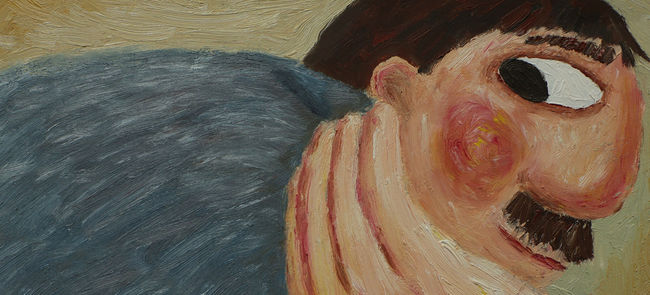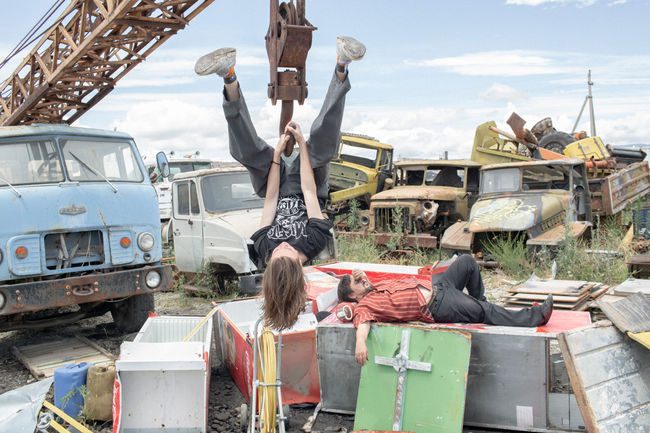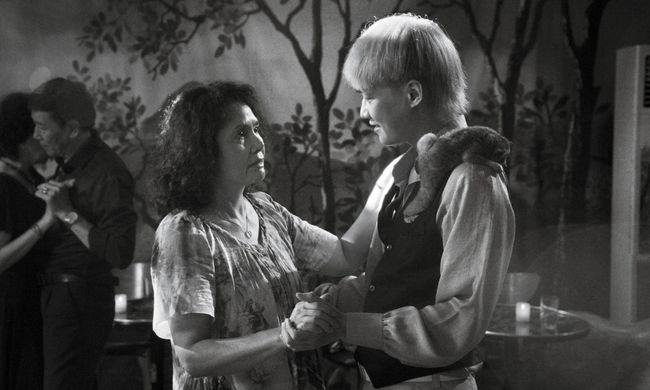BoostNL interview: Quatro Meninas
23 September 2023
“I’m a spiritual person”, says director Karen Suzane alongside writer Clara Ferrer, “so I believe it’s a very important thing to show how good the world can be.” This might seem a surprising way of framing a film that deals with slavery in Brazil in the 19th century, but the project Quatro Meninas will be a celebration of love, friendship, hope, nature and connection. “This happened too.”
The film centres on the meeting of four enslaved Black girls and their mistresses who together escape a boarding school in the hinterlands of Brazil. They shelter in an old farmhouse, where they explore their desires and individualities, developing new relationships and ways of living. Support from IFFR, the Hubert Bals Fund and the 2022–23 BoostNL programme has set the project on its way, with shooting set to begin in early 2024.
“We don't learn about history from a Black perspective.”
When the duo made the decision to tell this story, they were making the decision to tell a history they believe has been erased. “We don't learn about history from a Black perspective; you don't hear the voices of those who changed the country”, says Suzane. The project was born from a particularly personal case of erasure, a personal story that haunts writer Ferrer: that of her great-great-grandmother Arinda, who was sent to a boarding school and took with her a personal slave.
“I think what hurt me when I heard this was the casual way my grandmother told the story, very matter of fact. She spoke about her grandmother but didn’t reveal the name of this Black girl whom she was so intimate with, who shared this intimacy, brushed her hair, changed her clothes. She had no name. And we wanted to give a name to this girl.”
“The recognition from the Hubert Bals Fund was everything.”
Suzane has directed three short films that focus on Blackness and the identity struggles of underrepresented groups, but Quatro Meninas will be her first feature as a director, meaning it was particularly significant when IFFR’s Hubert Bals Fund awarded them development funds. “Because it's her first feature", says Ferrer, "how can people trust us to make this film? The recognition from the Hubert Bals Fund was everything.”
Next on the film’s development journey was participation in the BoostNL development programme: a collaboration between IFFR Pro and the Holland Film Meeting at the Netherlands Film Festival. The scheme offers a mix of international (supported by the Hubert Bals Fund) and Dutch projects a unique five-month development programme that starts at NFF in September and finishes at IFFR.
“I think what’s really amazing about BoostNL is that it's in two stages.”
“I think what’s really amazing about BoostNL is that it's in two stages”, reflects Ferrer, discussing how it softened their landing into the world of international co-production, markets and festivals. “It was very much about learning to talk to the industry because as someone who has only done small projects, I didn't know: how do I position myself in a big market? It was not competitive, it was very nurturing, very much about making every project work.”
Although established as an international co-production, the focus of the filmmakers still remains very much on Brazil, and on finding their primary target audience which is Black people in Brazil, and in particular Black Brazilian women. Suzane finds it very important that the crew is made up of as many women of colour as possible, in key and significant positions, seeking to redress huge disparities for Black women in Brazilian filmmaking.
It’s been reported that although Black women make up more than 25% of the population, making them the largest demographic group in the country, (as of 2020) only three Black Brazilian women have produced or directed feature-length films that gained commercial distribution. Suzane and Ferrer hope they can be part of a movement to redress this.
“It makes us feel that we're not alone.”
Amsterdam-based PRPL with Ellen Havenith signed on as a co-producer after meeting in Rotterdam at BoostNL. Working in the Dutch context proved to be poignant for the filmmakers, especially when the film addresses such historical inequalities born from the colonial era. “I remember that one of our consultants talked about how it was important that there was Dutch money in this project. I was really moved by this, because it makes us feel that we're not alone.”
“We struggle a lot here. We come from a country with many challenges. And sometimes we feel like the underdog. But it's really nice to feel like we're supported, and seen, and we're not shouting into the void – we're being heard.”
Read about this edition's 23–24 BoostNL projects
Quatro Meninas was supported by the Hubert Bals Fund for development, with the NFF+HBF scheme, and with the HBF+Europe: Minority Co-production scheme, supported by Creative Europe – MEDIA.

BoostNL
BoostNL is a 5-month tailor-made programme and a collaboration between NFF's Holland Film Meeting and IFFR

HBF+Europe 2023
09 July 2023
Hubert Bals Fund supports 12 projects with HBF+Europe schemes





